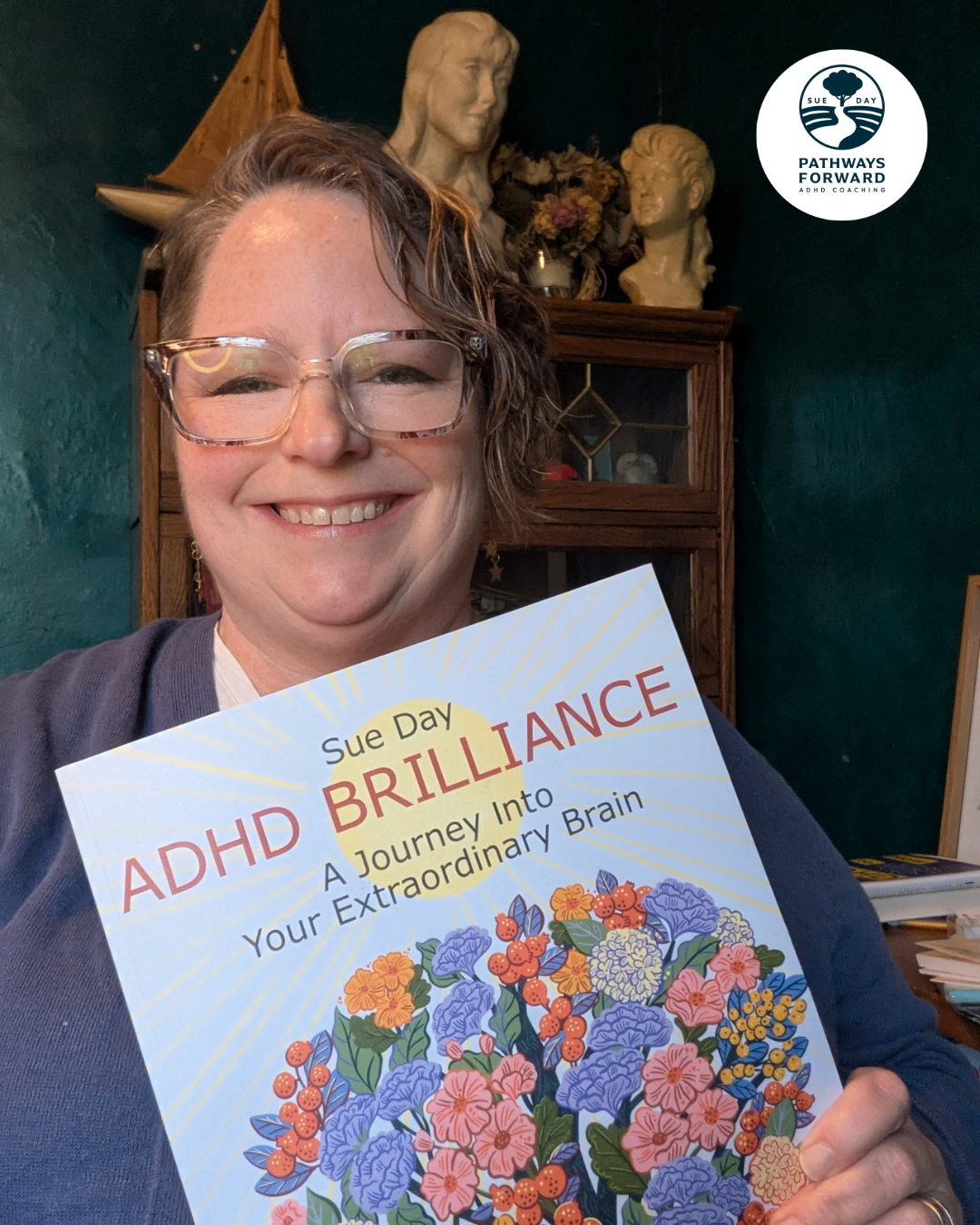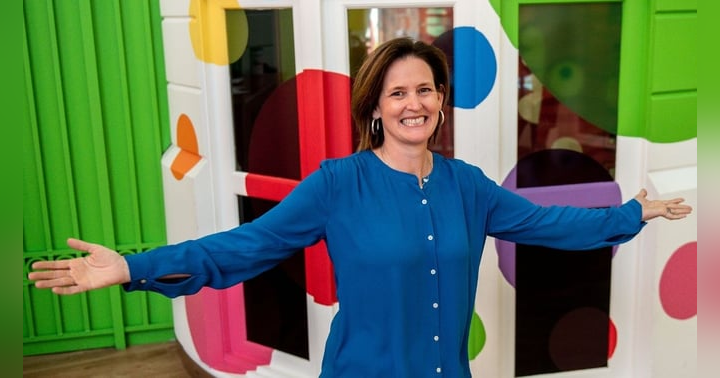
In our latest podcast episode, Sue Day on Creativity, Focus & Thriving with ADHD, we explored the often-misunderstood world of ADHD with ADHD coach and author, Sue Day. We delved into how ADHD isn't just a list of challenges, but also a source of unique strengths and abilities. This blog post expands on those insights, highlighting the creativity, crisis management skills, and strong sense of justice that can be genuine superpowers for individuals with ADHD. Join us as we reframe ADHD and uncover the brilliance within!
Reframing ADHD - Beyond the Challenges
For too long, ADHD has been primarily viewed through a deficit-based lens. The focus has been on the difficulties with attention, impulsivity, and hyperactivity. While these challenges are undoubtedly real and can significantly impact daily life, they don't represent the entire picture. A strengths-based approach to ADHD recognizes that alongside these challenges lie a wealth of unique abilities and perspectives that can be harnessed and celebrated. This involves shifting the narrative from what individuals with ADHD *can't* do to what they *can* do, often with remarkable skill and passion. This blog post explores some of these key strengths.
Meet Sue Day: From Burnout to ADHD Brilliance
Sue Day's personal journey is a powerful example of reframing ADHD. After years of navigating life without understanding why she struggled in certain areas, Sue experienced burnout across various roles. She then received an ADHD diagnosis as an adult. This diagnosis wasn't a limitation, but a key to unlocking a new understanding of herself. This journey led her to embrace her unique way of thinking and ultimately inspired her to become a certified ADHD coach and author. Through her work, Sue helps others with ADHD discover their own strengths and design lives that work *with* their brains, not against them. Sue's book, "ADHD Brilliance: A Journey Into Your Extraordinary Brain" acts as a workbook for those looking to find their own path after an ADHD diagnosis.
Unpacking ADHD Superpowers
Let's dive into some of the specific "superpowers" that often accompany ADHD. It's important to note that not everyone with ADHD will exhibit all of these traits, and the intensity of each can vary greatly. However, these are common strengths that deserve recognition and cultivation.
Creativity: The ADHD Brain's Unique Advantage
Individuals with ADHD often possess a remarkable capacity for creative thinking. Their brains are wired to make connections that others might miss, leading to innovative solutions and fresh perspectives. This creativity can manifest in various forms, from artistic pursuits like writing, painting, and music to problem-solving in business or developing new technologies. Why does this happen? The ADHD brain isn't as easily constrained by conventional thinking. The tendency to think outside the box, a lower threshold for boredom, and a constant search for stimulation can all contribute to a more creative and imaginative mindset. They are able to generate novel ideas and approach tasks from unconventional angles. They often have a high tolerance for ambiguity and are comfortable experimenting with new approaches. This can lead to groundbreaking discoveries and artistic innovations.
Crisis Focus: Excelling Under Pressure
While daily tasks might sometimes feel overwhelming, many individuals with ADHD excel in crisis situations. When faced with a challenge or unexpected event, they can hyperfocus and perform with exceptional clarity and efficiency. This ability stems from the brain's natural response to high-pressure situations, which can trigger the release of adrenaline and dopamine, improving concentration. While it might seem counterintuitive, the very traits that can make everyday life challenging – impulsivity and a tendency to be easily distracted – can become assets in a crisis. Quick decision-making, the ability to prioritize tasks rapidly, and a willingness to take calculated risks can be invaluable in high-pressure environments. Many individuals with ADHD gravitate toward careers that involve frequent crises, such as emergency medicine, firefighting, or journalism. The fast-paced, high-stakes nature of these roles provides the stimulation and challenge that their brains crave. In these settings, their ability to stay calm and focused under pressure can be life-saving.
Sense of Justice and Fairness: A Core ADHD Trait
A strong sense of justice and fairness is another common trait among individuals with ADHD. This can manifest as a deep empathy for others, a willingness to stand up for what is right, and a passionate advocacy for social justice. This strong sense of fairness often arises from personal experiences with being misunderstood, unfairly judged, or treated differently. These experiences can fuel a desire to create a more just and equitable world for everyone. Many individuals with ADHD are drawn to careers or volunteer roles that involve advocating for others, such as law, social work, or activism. They are passionate about fighting injustice and protecting the rights of vulnerable populations. Their empathy and ability to see things from different perspectives make them effective advocates. This strong sense of justice is a powerful force for positive change, driving individuals with ADHD to make a meaningful difference in the world.
Busting Common Myths About ADHD
Despite growing awareness, many misconceptions about ADHD persist. Let's debunk some of the most common myths:
- Myth: ADHD is just for kids. Reality: ADHD is a neurodevelopmental condition that can persist throughout adulthood.
- Myth: People with ADHD aren't intelligent. Reality: Intelligence is not related to ADHD. People with ADHD can have a wide range of intellectual abilities.
- Myth: ADHD is just an excuse for laziness. Reality: ADHD is a neurological condition that affects brain function. It is not a matter of willpower or laziness.
- Myth: ADHD is caused by bad parenting. Reality: ADHD is primarily genetic, although environmental factors may play a role.
- Myth: Medication is the only treatment for ADHD. Reality: Medication can be effective, but other treatments, such as therapy, coaching, and lifestyle changes, can also be beneficial.
Challenging these myths is crucial for creating a more supportive and understanding environment for individuals with ADHD.
Embracing Diagnosis and Taking the First Steps
Receiving an ADHD diagnosis can be a transformative experience. For some, it brings a sense of relief and validation, finally providing an explanation for lifelong struggles. For others, it can be overwhelming and emotionally challenging. It's essential to allow yourself time to process the diagnosis and to seek support from trusted friends, family, or professionals. The first steps after diagnosis can include:
- Educating yourself: Learn as much as you can about ADHD and its impact.
- Seeking professional help: Consult with a psychiatrist, psychologist, or ADHD coach.
- Connecting with others: Join a support group or online community to connect with other individuals with ADHD.
- Developing strategies: Work with a professional to develop strategies for managing challenges and leveraging strengths.
Remember that diagnosis is the beginning of a journey, not the end. With the right support and strategies, individuals with ADHD can thrive and achieve their full potential.
Sue Day's Workbook: A Guide to Your Extraordinary Brain
Sue Day's workbook, "ADHD Brilliance: A Journey Into Your Extraordinary Brain," is a valuable resource for anyone seeking to understand and embrace their ADHD. The workbook is designed to be accessible and engaging, with practical exercises and tools to help readers identify their strengths, manage challenges, and design lives that align with their unique needs and goals. It emphasizes a strengths-based approach, empowering individuals with ADHD to view their differences as assets rather than liabilities. The workbook covers a range of topics, including:
- Understanding the ADHD brain
- Identifying personal strengths and values
- Developing executive function skills
- Managing emotions and stress
- Building healthy relationships
- Creating a fulfilling life
The workbook is available in print format and includes companion PDFs for easy access to worksheets and resources.
Resources and Further Exploration
Here are some additional resources for learning more about ADHD and finding support:
- Pathways for Coaching: Sue Day's website (pathwaysforwardcoaching.com) offers information about her coaching services, as well as free worksheets and resources.
- ADD Coaching Academy: This coaching school provides ICF-aligned training for individuals interested in becoming ADHD coaches.
- Tracy Otsuka ("ADHD for Smart Ass Women"): Tracy's program and community offers a supportive space for women with ADHD.
- Driven to Distraction by Edward Hallowell & John Ratey: This classic book provides a comprehensive overview of ADHD and its impact on adults.
These resources can provide valuable information, support, and guidance on your journey with ADHD.
Thriving with ADHD - A Strengths-Based Approach
The key to thriving with ADHD lies in adopting a strengths-based approach. This involves recognizing and celebrating your unique abilities, understanding your challenges, and developing strategies to manage them effectively. Instead of focusing on fixing what's "wrong," focus on amplifying what's "right." This might involve:
- Finding careers or hobbies that align with your interests and strengths.
- Creating systems and routines that work with your brain, not against it.
- Surrounding yourself with supportive people who understand and appreciate you.
- Practicing self-compassion and celebrating your successes, no matter how small.
By embracing your ADHD and leveraging your strengths, you can create a fulfilling and meaningful life. Individuals with ADHD have the potential to make significant contributions to the world, thanks to their unique perspectives, creative thinking, and unwavering determination. So, embrace your superpowers and let your brilliance shine!
We hope this blog post has shed light on the many strengths and abilities associated with ADHD. Remember to check out our full conversation with Sue Day in the podcast episode: Sue Day on Creativity, Focus & Thriving with ADHD. Sue shares practical tips and insights on how to embrace your ADHD and design a life that truly works for you. Tune in to learn more about Sue's journey and discover your own ADHD superpowers!










